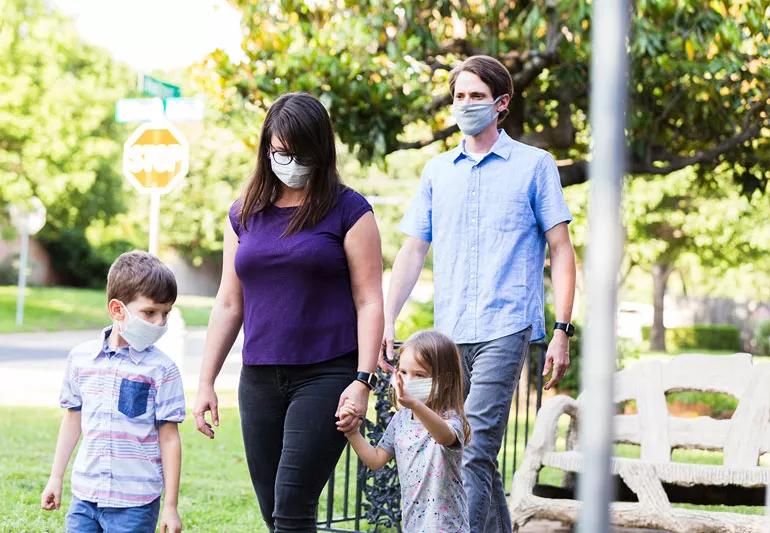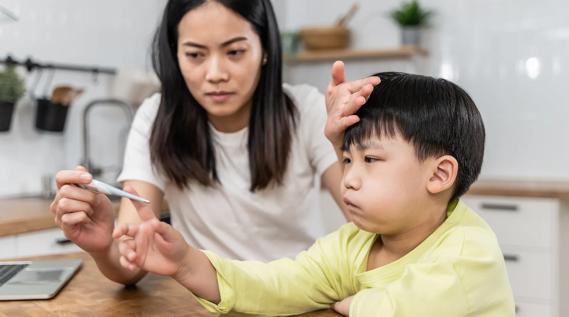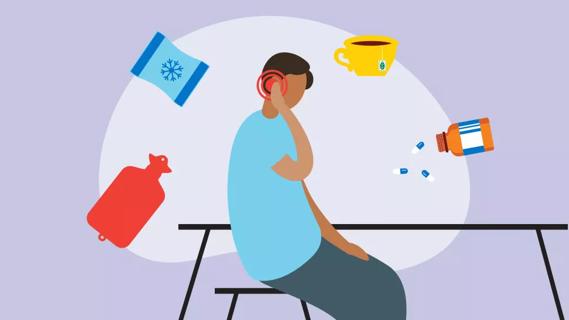Advertisement
The short answer from an infectious disease expert

A: As the current coronavirus (COVID-19) pandemic stretches on with a secondary wave of cases following the re-opening of many states and cities, wearing a mask becomes an even more important part of daily life.
Advertisement
Cleveland Clinic is a non-profit academic medical center. Advertising on our site helps support our mission. We do not endorse non-Cleveland Clinic products or services. Policy
Remember: masks are not about protecting the wearer but, rather, protecting everyone else. This is especially important because so many carriers of the novel coronavirus — as many as 40%, according to one recent study — are asymptomatic and could otherwise be spreading the virus without even knowing it.
Wearing a mask creates a barrier that prevents the spread of droplets that carry the virus. Even if a cloth mask can’t catch every single droplet, it still significantly reduces the droplets a carrier propels into the air around them.
While these droplets usually drop to ground after traveling around six feet, coughing or sneezing can propel them upwards of 25-to-26 feet. A mask, combined with social distancing, greatly reduces the chances these droplets reach others around you and greatly decrease the odds of spreading the virus.
This makes it important to routinely wear masks when you’re in close proximity to others indoors, like at the grocery store or pharmacy. But what about when you’re simply outside, working in your garden or on a brisk, summer walk?
There’s certainly nothing wrong with wearing a mask any time you’re outdoors if you feel comfortable doing so. If you’re unlikely to be around anyone or will have the option of maintaining a safe distance from anyone you encounter, then a mask likely isn’t necessary but having one handy is a good idea just in case.
Advertisement
If you’re going to be around others, either in a crowd or in a situation where it will be difficult to maintain that six foot distance from others, you should wear a mask. That’s especially true if you’ll be doing any exercise or activity in which you might be breathing heavier than normal, thus possibly propelling those droplets from your mouth further than the usual distance.
It’s important to keep in mind, though, that a mask is no substitute for social distancing. The most effective way to prevent the spread of the virus is to combine mask-wearing with social distancing.
Advertisement
Learn more about our editorial process.
Advertisement

A COVID-19 infection can bring on depression or anxiety months after physical symptoms go away

Just like the flu, COVID-19 continues to evolve every year with new and smarter variants

The latest omicron subvariants carry specific mutations that may allow the SARS-CoV-2 virus to be better at evading immune protection

Research shows the virus can affect your ability to get or maintain an erection

RSV can lead your child to develop pneumonia and have trouble breathing

Getting vaccinated in October can help protect you against severe illness between November and March

Respiratory syncytial virus spreads easily through respiratory droplets spewed out by those who are infected

Face-touching is a common habit, but one that can be overcome, like by learning to recognize when you’re doing it and keeping your hands distracted

Not all ear infections need antibiotics — cold and warm compresses and changing up your sleep position can help

A glass of lemon water in the morning can help with digestion and boost vitamin C levels, and may even help get you into a better routine